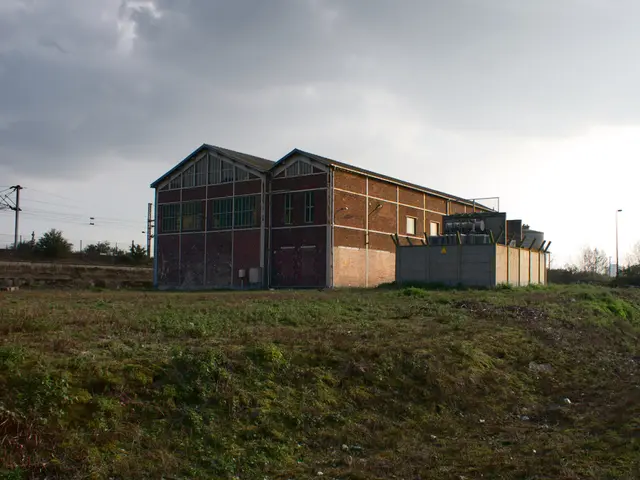Trump's Initial 100 Days Focus on Abolishing Diversity Policies, Securing Civil Rights Defenses
In a radical shift, President Donald Trump's second term saw an aggressive assault on diversity and inclusion efforts that had been gaining momentum for over two decades. This whirlwind of changes undid decades-old policies designed to address historical injustices for marginalized groups in a matter of months.
Trump kicked off his second term by revoking a 1965 executive order mandating equal employment opportunities for all, slashed environmental actions to protect communities of color, and ordered the gutting of an agency that helped fund minority and women-owned businesses. Critics label these moves as a "white supremacist's agenda," alleging they erase decades of hard-fought progress on leveling the playing field for marginalized communities.
Claiming diversity, equity, and inclusion (DEI) initiatives are discriminatory and stifle merit, the Trump administration has canceled government contracts for "illegal DEI," shut down offices addressing civil rights violations, and frozen research grants on racial disparities in healthcare. These actions have alarmed advocates and educational institutions alike, accelerating a debate about the role and purpose of DEI initiatives in American society.
William Jacobson, a law professor at Cornell University, defended gutting DEI initiatives, arguing that the hyperfocus on race and the use of a racial lens to view almost everything was itself a distortion. However, Hector Sanchez Barba, president and CEO of Mi Familia Vota, a nonpartisan organization that mobilizes Latino voters, disagreed, stating that Trump's directives are a deliberate attack on the pillars that maintain and sustain our democracy.
Education has become a significant battleground in the administration's efforts to do away with DEI programs. The administration has threatened to revoke federal funding from schools and universities that engage in DEI practices, sparking legal challenges and drawing accusations of government overreach. The Department of Education's workforce has been slashed in half, and seven of its 12 Office for Civil Rights offices, which investigate complaints ranging from racial harassment to accessibility for students with disabilities, have been shuttered.
The broader impacts of these actions extend beyond education, with federal employees encouraged to report ongoing DEI activities, creating a culture of scrutiny. Over 75% of scientists considered leaving the U.S. due to funding cuts and political interference, while federal grants mentioning DEI became subject to cancellation. Cultural and scientific institutions have not been spared, with DEI-related offices being dismantled and references to underrepresented groups being removed from federal websites and museum exhibits.
Historians fear that these actions are part of a broader effort to suppress honest discussions about U.S. history, particularly issues of race, inequality, and systemic injustice, while promoting a sanitized view of American history. Meanwhile, economic opportunities for marginalized communities are being jeopardized, as federal funding for organizations supporting economic growth in underrepresented groups have been cut or eliminated.
In one executive order, Trump targeted museums and cultural institutions, accusing them of fostering "national shame" and singling out the Smithsonian Institution, one of the world's largest and most impactful museum networks, for promoting "improper ideology." The National Museum of African American History and Culture was also criticized for portraying American and Western culture as "inherently harmful."
These actions have sparked debate and controversy, with critics accusing the Trump administration of employing racist policies and agenda while supporters argue that the focus on race is stifling entrepreneurship and merit. Ultimately, the impact of these policies on American society will be closely watched and scrutinized in the years to come.
- The aggressive pushback from the Trump administration against diversity and inclusion efforts in the second term has raised concerns in the realm of business, with the revocation of equal employment opportunities and the gutting of agencies that help fund minority- and women-owned businesses.
- In the world of education, the administration's crackdown on diversity, equity, and inclusion (DEI) initiatives has sparked legal challenges, as schools and universities face threats of federal funding removal for engaging in DEI practices.
- The health sector has seen consequences as well, with research grants on racial disparities in healthcare being frozen, creating alarm among advocates.
- Environmental action has experienced setbacks, as the administration slashed environmental protections designed to benefit communities of color.
- The environment is not the only sector affected by policy and legislation changes, as the government has moved to demonize DEI initiatives, labeling them as discriminatory and stifling merit.
- This shift in policies has triggered a wider debate in the realm of politics and general news, with critics accusing the administration of promoting a white supremacist agenda and erasing hard-fought progress on leveling the playing field for marginalized communities.
- In the field of diversity and inclusion, specifically, the administration's dismissal of DEI initiatives has raised concerns about the broader suppression of honest discussions about systemic injustices, as federal funding for organizations supporting economic growth in underrepresented groups is being cut or eliminated.




